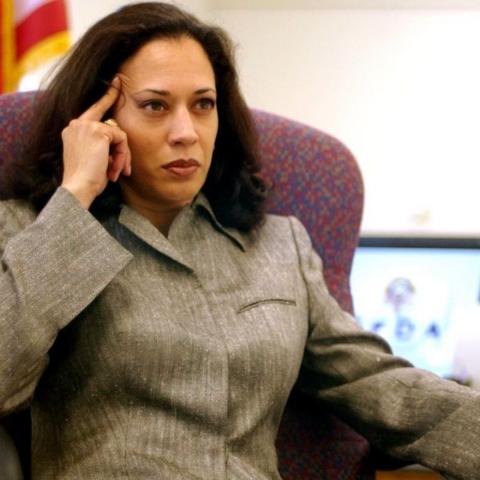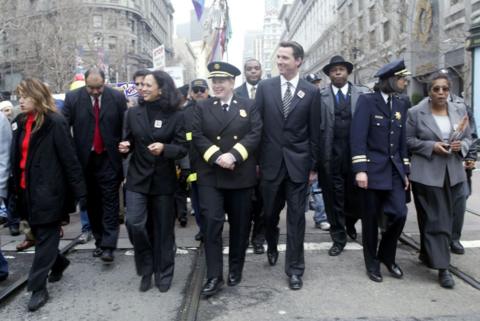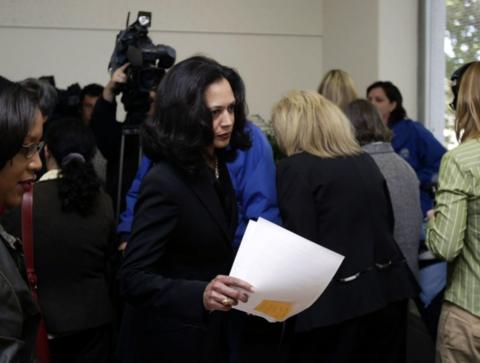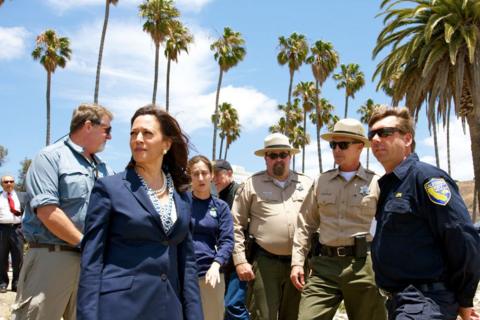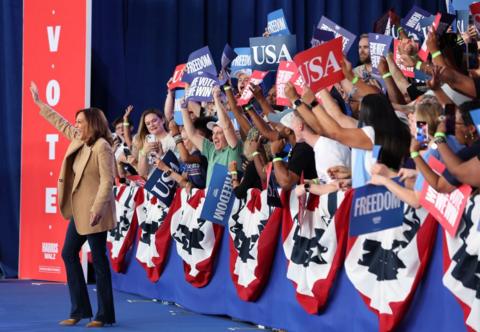Over the span of her law enforcement career, Harris’s allies sought to paint her as a “progressive prosecutor” committed to criminal justice reform but also tough on crime.
It was a fine line to walk in a liberal city in the country’s largest left-leaning state, and one that critics on both sides of the political aisle say she did not stick to.
As district attorney, she adopted a so-called “smart-on-crime” philosophy, which included initiatives to keep non-violent offenders out of prison by steering them into job training programs and ensuring young offenders remained in school.
Niki Solis, an attorney in the San Francisco public defender’s office who worked opposite Harris in the early 2000s, said she had been receptive to her concerns about how young victims of sex trafficking were being charged with prostitution, as opposed to being treated as victims.
“I realised that she understood issues that a lot of her predecessors and a lot of [district attorneys] up and down the state failed to understand or even acknowledge,” said Ms Solis.
Trump and his allies on the right have sought to play up this time in her career, depicting her as part of a “San Francisco liberal elite”. But on the left of politics, she has been accused of not being reform-minded enough, with some on social media nicknaming her “Kamala the cop”.
But by the time Harris was elected as California’s attorney general, in 2010, her progressive tendencies appeared to have given way to political pragmatism.
"She was seeking more of a national profile. She wanted to make a mark. There was definitely an expectation of an interesting future to come,” said Gil Duran, who worked for Harris in the attorney general’s office for a few months.
"The attorney general - usually a sleepy backwater of an office - was now home to a rising star."
On the national stage, Harris began to make her mark. In 2012, in the aftermath of the global financial crisis, Harris threatened to walk away from negotiations on a financial settlement between state attorneys general and five US banks. California was set to receive around $4 billion in the initial deal, and Harris eventually secured $18 billion for the state.
The Harris campaign has highlighted this case on the campaign trail as more proof she’s willing to stand up to powerful interests.
But more recent reporting shows that only $4.5 billion of the settlement ended up going towards California homeowners who had been ripped off by lenders.
In moves that angered some liberals, she implemented a school truancy program state-wide, which some county prosecutors used to arrest parents. And she defied a Supreme Court order to reduce overcrowding in the state’s prisons.
She also reversed her previous position on the death penalty in 2014 when, as attorney general, she appealed a lower court’s ruling that found it was unconstitutional. Now, the prosecutor who once refused to sentence violent murderers to death on the basis that "there is no exception to principle" was defending the state’s right to do just that.
Hadar Aviram, a criminal justice and civil rights professor who petitioned Harris to leave the decision in place, was one of many critics of her stance.
“You are not under any obligation to defend things that are morally unjust,” she told CNN in 2019 of the episode. “If you truly believe that they’re morally unjust and you have an opportunity to take a stand, I think it’s an imperative to do so.”
